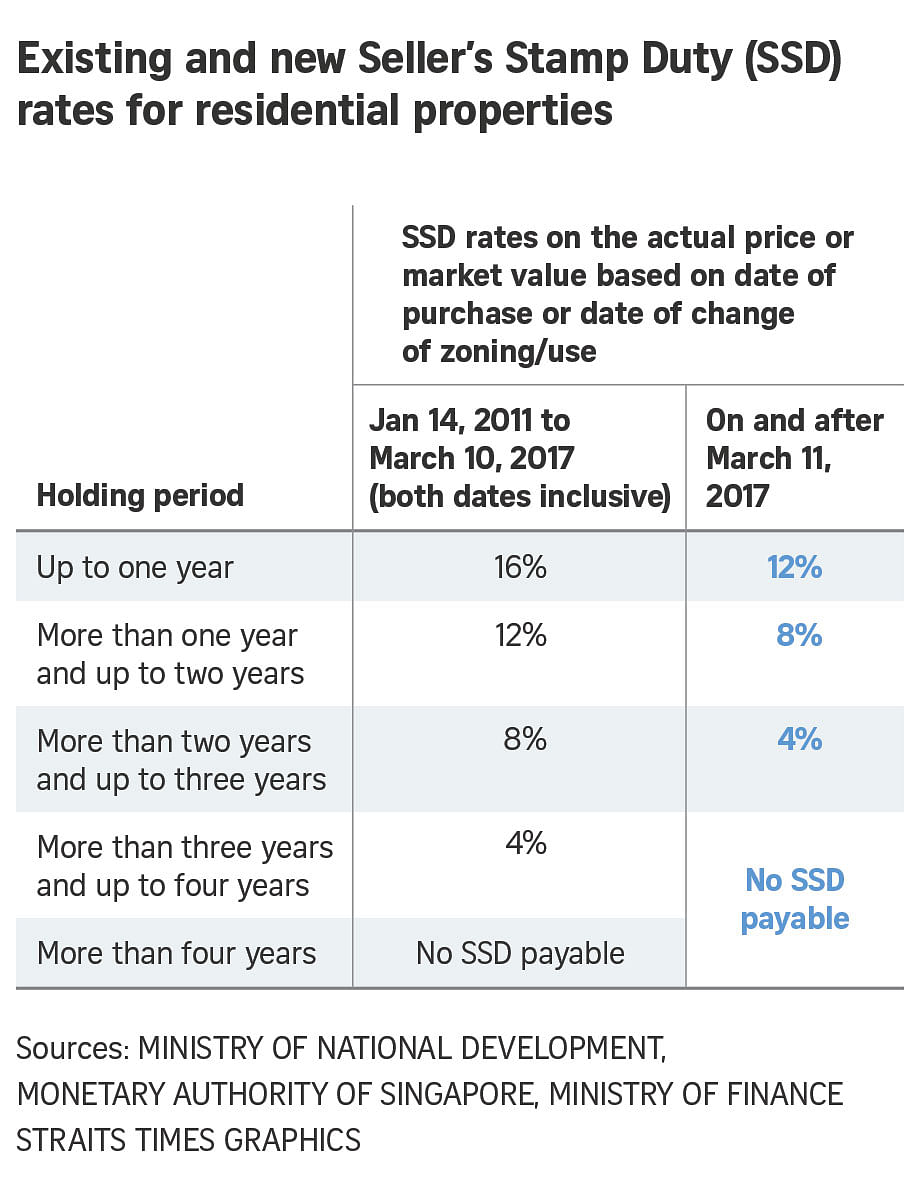Govt eases some property cooling measures, cutting seller's stamp duty and slightly relaxing TDSR rules
Sign up now: Get ST's newsletters delivered to your inbox

The Government has relaxed some property cooling measures on the sellers' stamp duty front as well as the total debt servicing ratio framework.
ST FILE PHOTO
SINGAPORE - The Government has relaxed some residential property measures relating to the seller's stamp duty (SSD) as well as the total debt servicing ratio framework (TDSR). The new rules take effect from March 11.
However there is no change to the additional buyer's stamp duty (ABSD) as well as loan-to-valuation (LTV) limits.
Instead, the Government is making "calibrated adjustments" to the SSD and TDSR framework, the ministries of national development and finance and the Monetary Authority of Singapore (MAS) said in a joint statement on Friday (March 10).
The SSD is currently payable by those who sell a residential property within 4 years of purchase, at rates of between 4 per cent and 16 per cent of the property's value.

- The changes will see the SSD holding period cut to three years, down from four.
- The SSD rates will also be lowered by four percentage points for each tier.
- The new SSD rates will range from 4 per cent (for properties sold in the third year) to 12 per cent (for those sold within the first year).
The rates apply to all homes bought on and after March 11.
The current TDSR framework aims to encourage prudent borrowing by households.
Under this frameowork, property loans extended by a bank cannot exceed a TDSR threshold of 60 per cent.
This means that your total loan obligations cannot exceed 60 per cent of your monthly gross income.
However, this 60 per cent TDSR threshold will no longer apply to mortgage equity withdrawal loans with loan-to-value ratios of 50 per cent and below. These refer to loans where borrowers borrow against the value of their properties to obtain more cash. This move is expected to affect only a small group of owners.
Said the statement: "Some borrowers have given feedback that the TDSR framework has limited their flexibility to monetise their properties in their retirement years, that is to borrow against the value of their properties to obtain additional cash. MAS will therefore relax the rules to meet such needs."
The Government said the bulk of current property measures "remain necessary to promote a sustainable residential property market and financial prudence among households."


